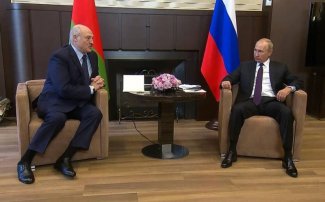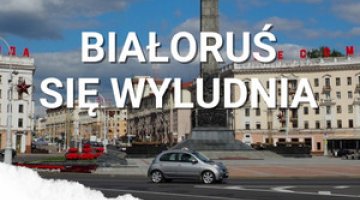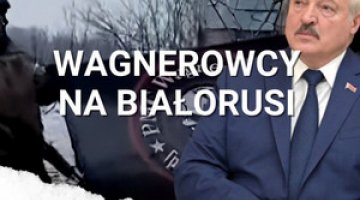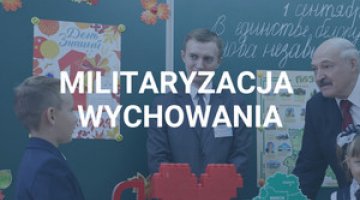Putin and Lukashenka met in Sochi: no settlement has been reached

Russian President Vladimir Putin met with Alyaksandr Lukashenka on 14 September in Sochi. The face-to-face conversation concerned the strengthening of Russian-Belarusian relations as part of the Union State, economic co-operation, and support for Belarus in handling the COVID-19 epidemic. According to the Kremlin spokesman, Dmitry Peskov, no documents were signed during the meeting, and no press conference was held after it. Only a fragment of the conversation preceding the face-to-face meeting was published. Putin confirmed his readiness to grant Belarus a loan, which had been discussed earlier during the meeting of Russian Prime Minister Mikhail Mishustin and the Belarusian Minister of Foreign Affairs Vladimir Makei. The amount of the loan was increased from US$1 billion to US$1.5 billion. Putin also positively responded to the constitutional reform proposed by Lukashenka, pointing out that this is the right way to overcome the political crisis, pointing out that this crisis is an internal matter for Belarus.
Commentary
- This was the first meeting of the two leaders since the 9 August election in Belarus, officially won by Lukashenka. The official result sparked unprecedented public anger in the form of mass protests that have been continuing for over a month. Moscow's reaction to the post-election events has evolved from a moderate wait-and-see approach at the beginning to firm support for Lukashenka at present, which includes the potential use of the Russian security services to assist the Belarusian regime. The support so far has also been offered in the media – dozens of Russian media specialists supported the Belarusian government media. Furthermore, the main Russian television channels broadcast an extensive interview with Lukashenka, in which he gave assurances that his power was inviolable, a few days before the visit to Sochi. Since the beginning of the crisis in Belarus, the Kremlin has taken the position that the government in Minsk should not enter into dialogue with the opposition Coordination Council. Moreover, the Kremlin’s propaganda accuses the West of being behind the protest that in its opinion are aimed at pulling Belarus out of the Russian sphere of influence.
- The meeting did not bring any groundbreaking changes in Russian-Belarusian relations. Contrary to expectations, no visible progress was achieved in the talks on deepening the integration of Russia and Belarus or regarding economic and energy co-operation. Putin's declarations (apart from increasing the amount of the loan offered to Belarus) are a repetition of previous announcements. It cannot be ruled out that a scenario of further political and economic contacts between the two countries was agreed during the meeting. The decision to refrain from disclosing it might be dictated by prudence and the fears of both Lukashenka and Putin that excessively ostentatious actions pushing for integration would lead to the weakening of the Minsk regime, which still needs to face the threat of the escalation of the protests.
- The Kremlin's immediate and overriding goal regarding Belarus at this stage is to put down the anti-Lukashenka protests as soon as possible, since Moscow perceives these as a bad example for its own citizens. At the same time, making any concessions to the public demanding a change of power in the neighbouring republic is a red line for the Kremlin, which neither Putin nor Lukashenka wants to cross. Another of Moscow’s objectives is to suppress the Belarusian public’s democratic aspirations which over time this would lead to distancing Belarus from Russia. The two countries are close in social and cultural terms at present. The Kremlin is determined to keep Belarus within the Russian sphere of influence, including under military control. In turn, Russia's main strategic interest remains the political and economic integration of the two countries, but it seems able to slightly postpone reaching it. This integration is expected to lead to the consolidation of Russian control over Belarus under the Union State Agreement and 31 ‘road maps’ that have not been published, which the Kremlin unsuccessfully attempted to force Lukashenka to sign over the past year.
- Moscow has not withdrawn its support for Lukashenka, considering him to be determined to preserve Russian security interests in Belarus. However, the problem for Moscow is the fact that Lukashenka, despite unequivocal support from the Kremlin, is not able to extinguish the protests. In fact his decisions are even leading to an escalation of public discontent. It also seems reasonable to ask what price Russia is ready to pay to maintain Lukashenka’s regime. The need for a leader with no public mandate to constantly control the internal situation leads to an increase of the spending on the economically inefficient Belarus. This provokes a negative reaction from a section of the Russian public. Putin's approval of the constitutional reform and the related snap presidential election indicates that the Kremlin sees this as a way out of the impasse. He also treats this as an opportunity to replace a partner in whom he has limited trust and who is trying to resume the tactic of avoiding hard commitments. On the other hand, it allows the appearance of legalism to be maintained and that it does not succumb directly to street pressure. The 7th Russian-Belarusian Regions Forum, which will be attended by representatives of the political and business circles of both countries, scheduled for 28-29 September, may serve as an opportunity to continue the talks regarding this subject.
- For Lukashenka, the meeting with Putin was a way to manifest that he retains the support of the Kremlin; in his opinion it is the Kremlin who guarantees the stability of his rule. The only argument used by Lukashenka in talks with Moscow is to highlight the role of Belarus in ensuring Russia's military security. Proof of this includes the fact that the Belarusian tactical battalion group was sent to the Russian-organised Caucasus 2020 exercises for the first time. The scenario of these exercises was intended at showing off the capabilities of the Russian Armed Forces regarding Ukraine.
- Lukashenka met with Putin at a time when social protests in Belarus continue to pose a threat to his regime. The deteriorating economic situation as well as the conflict with the West over the rigged election and the brutal pacification of demonstrations forced him to start a new phase of talks with Russia, which is now Belarus’s main source of political and financial support. Ruling out the option of opening dialogue with the protesters and the intensification of repression against opposition circles has limited room for manoeuvre and has weakened Lukashenka’s negotiating position. On the other hand, he does not want his power to be limited as a result of Moscow’s efforts to enhance integration.




